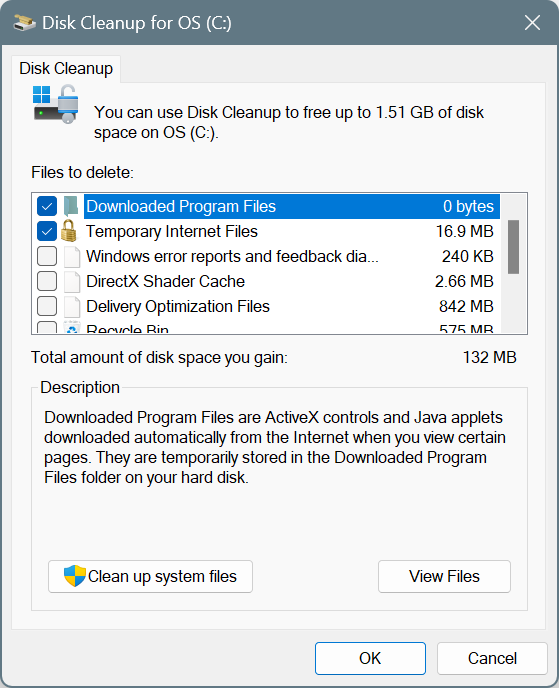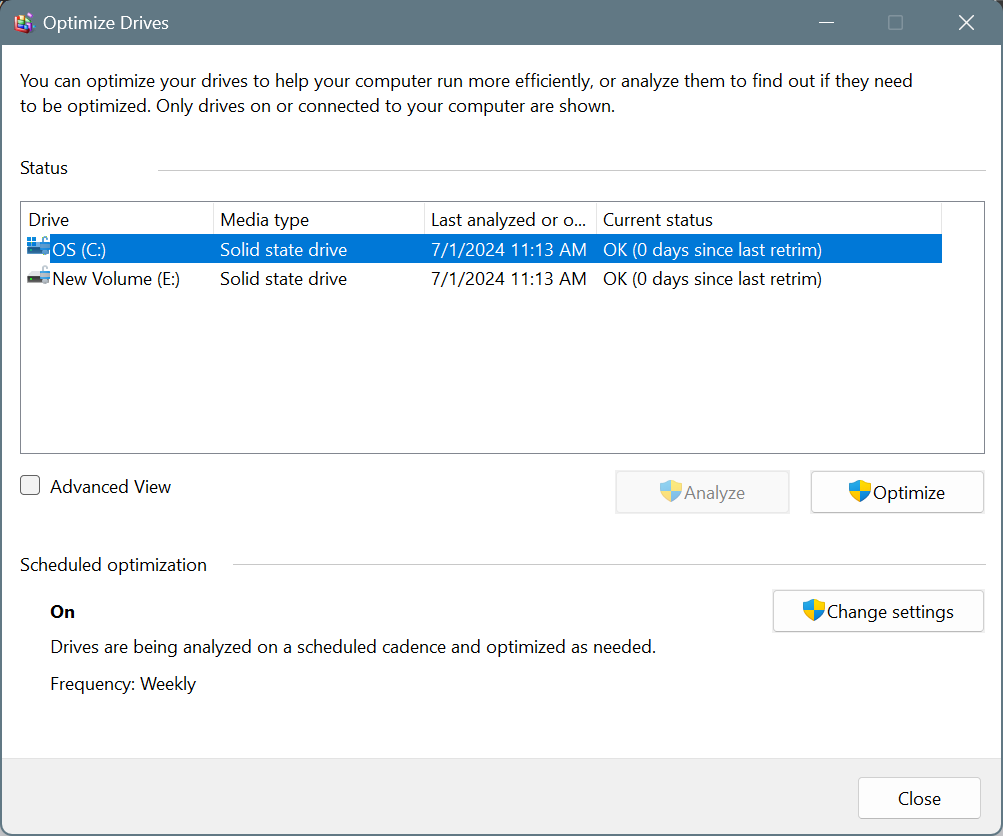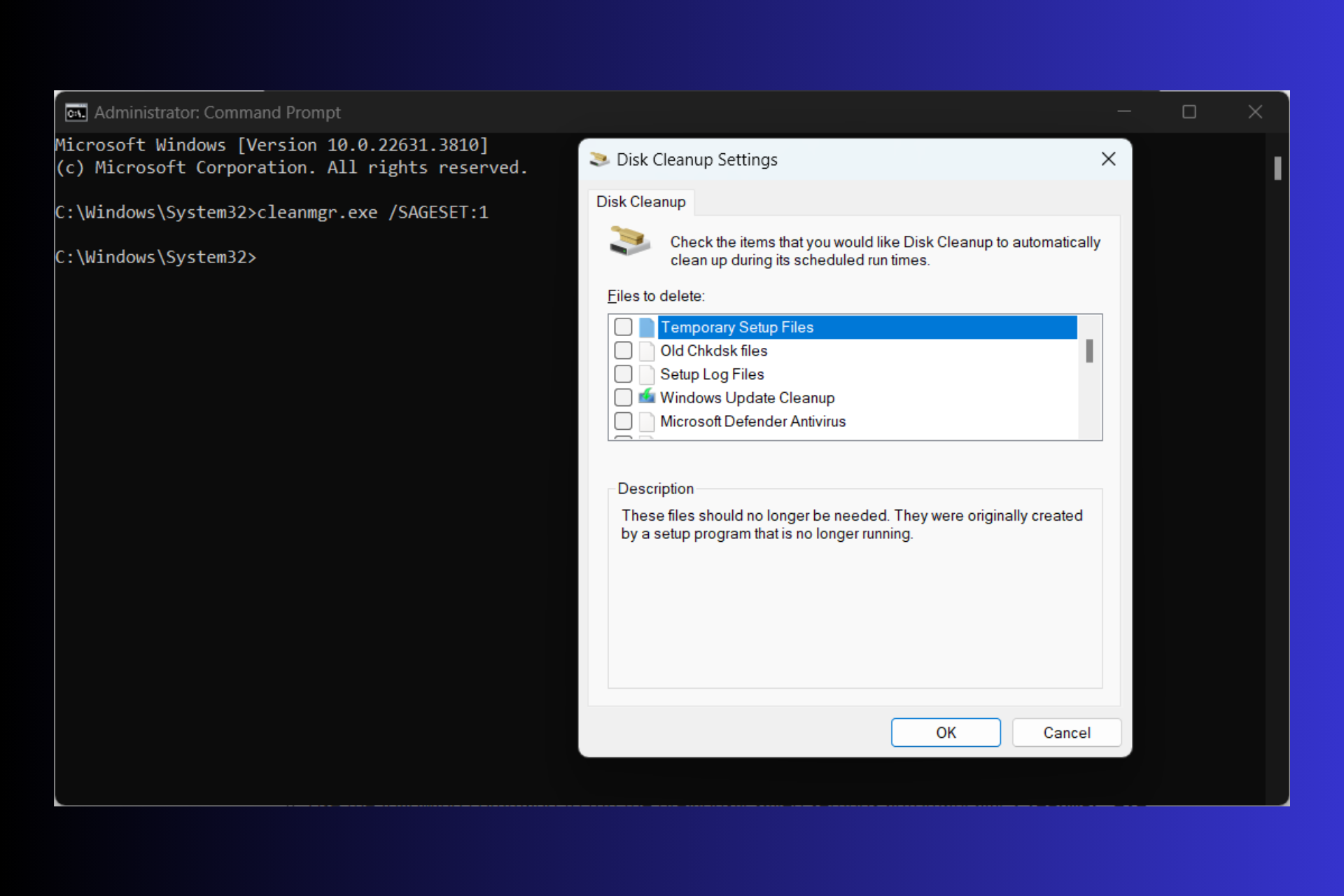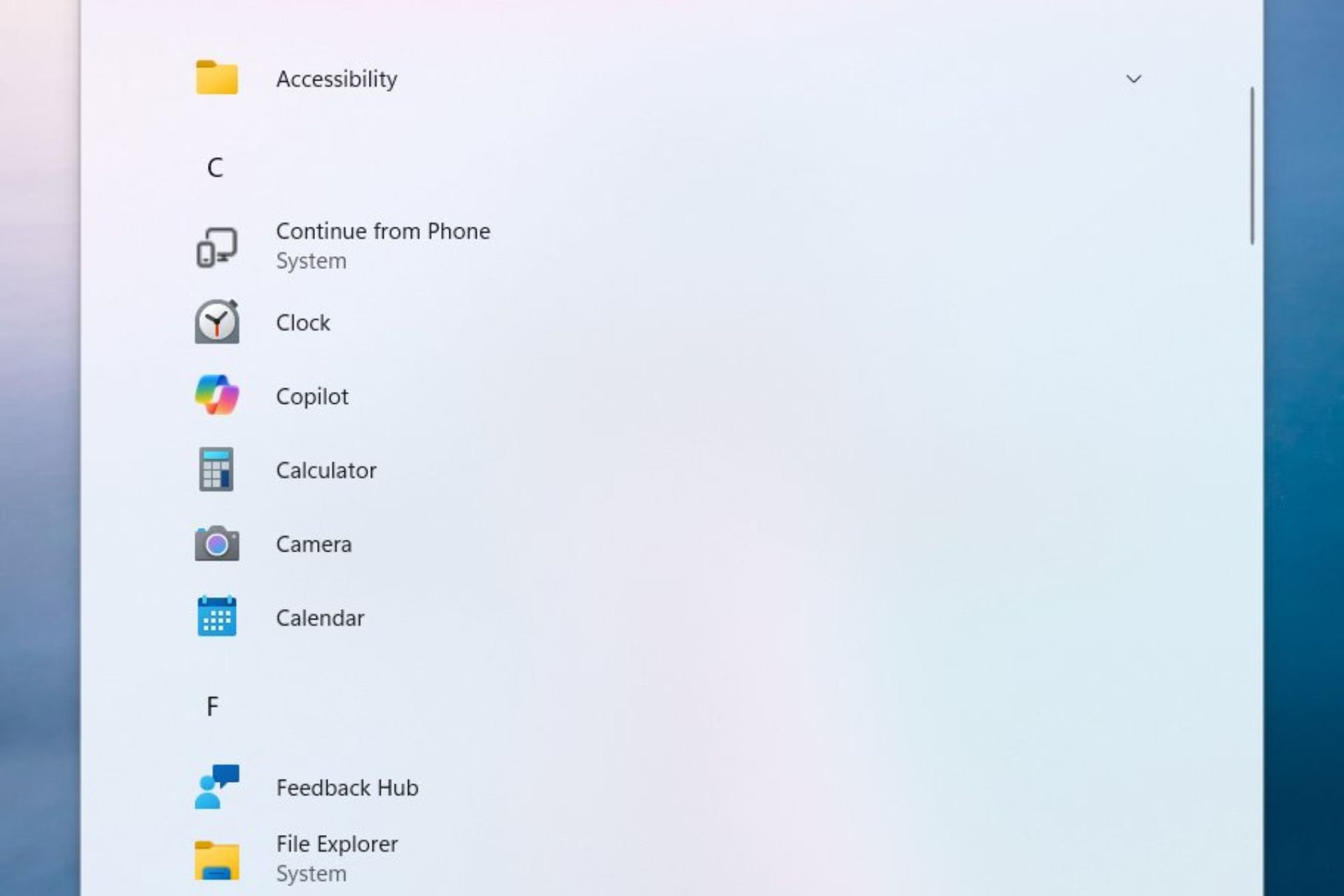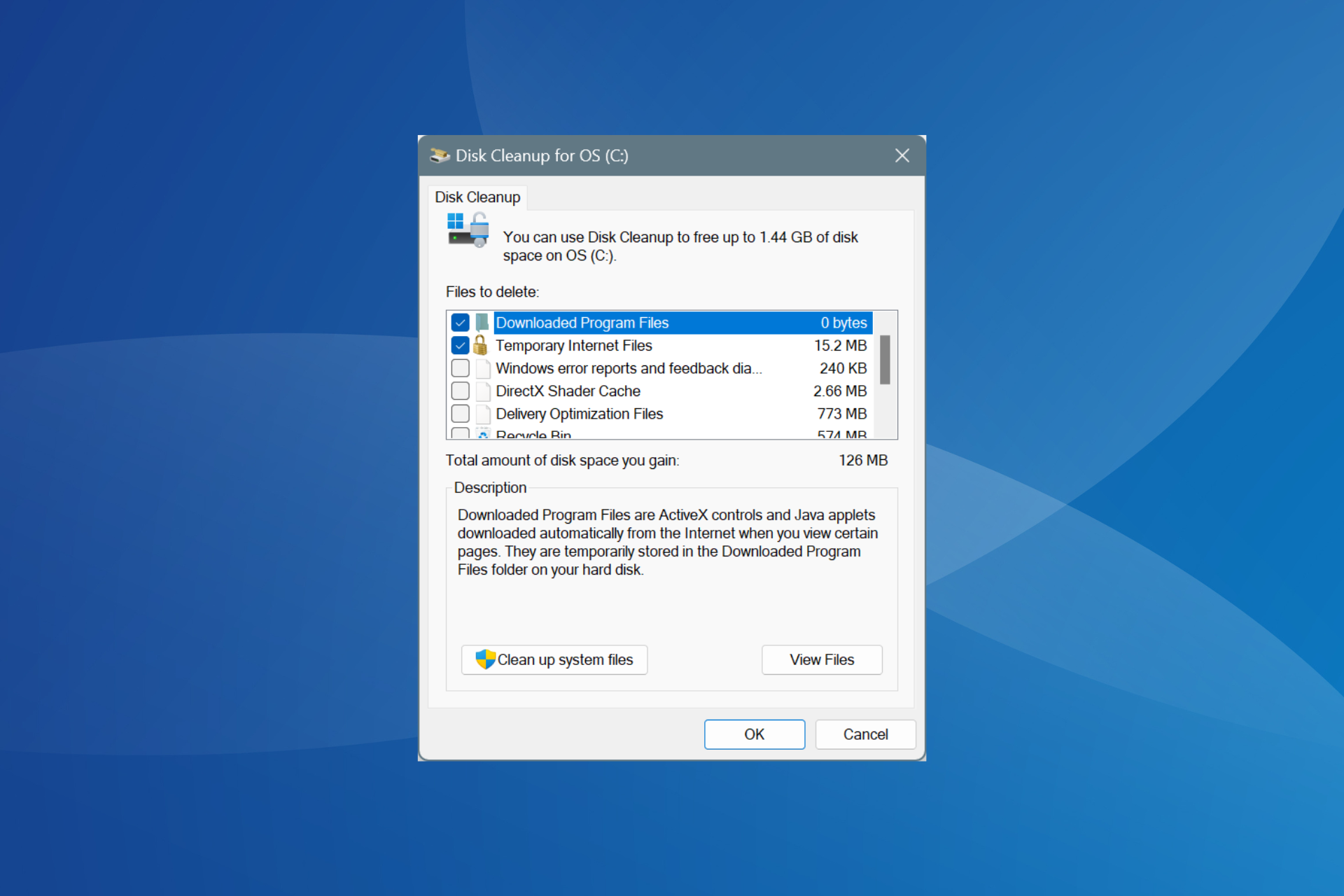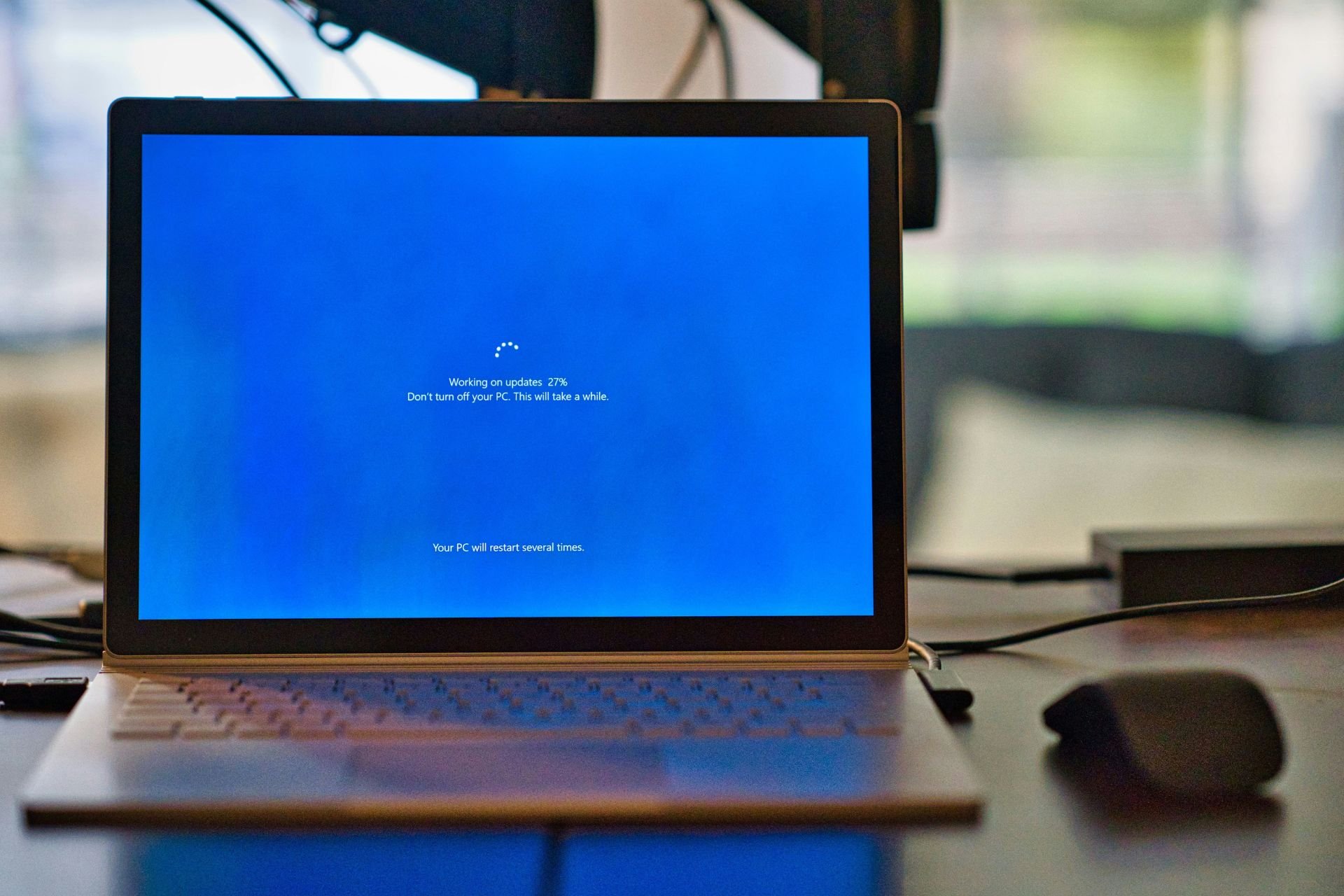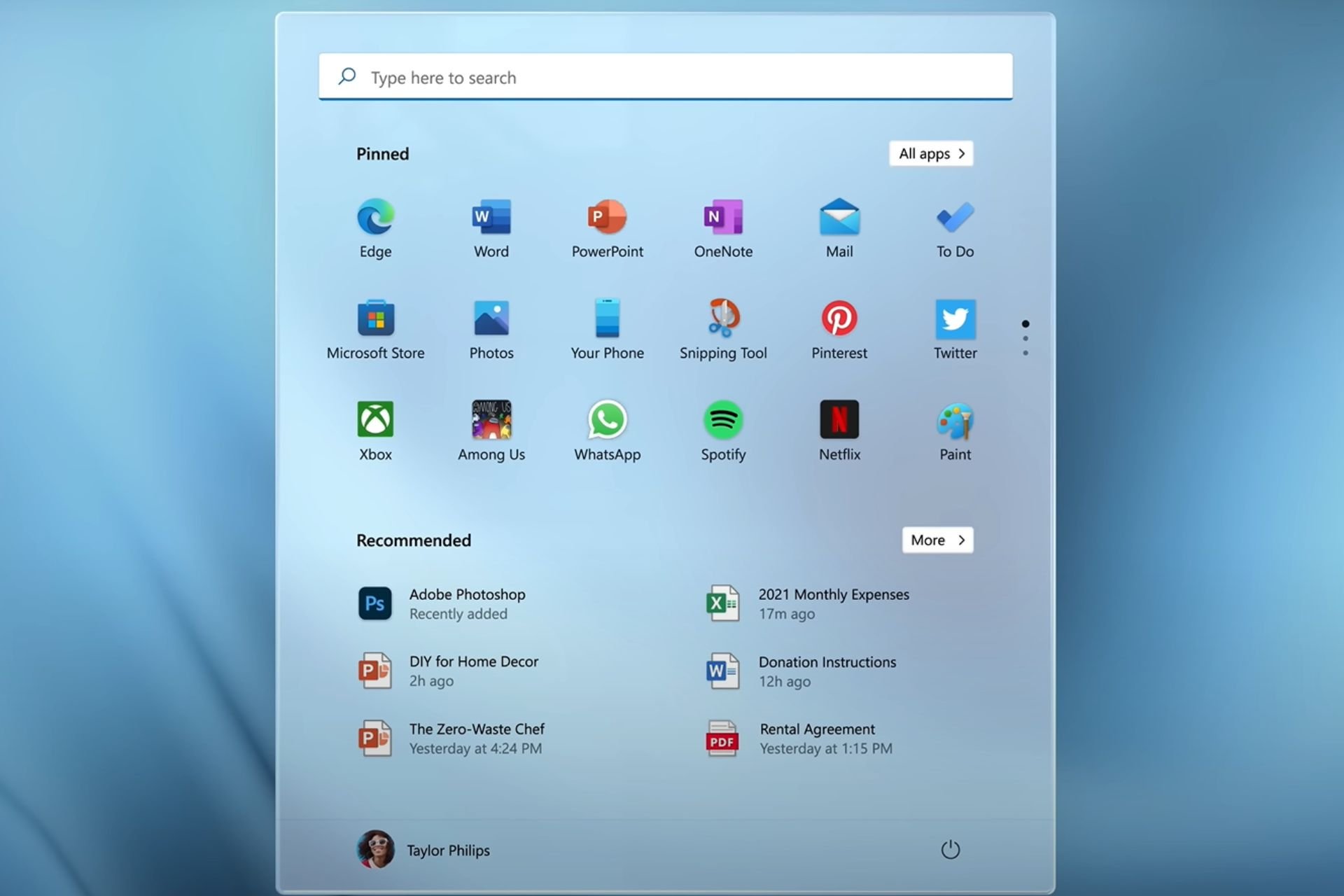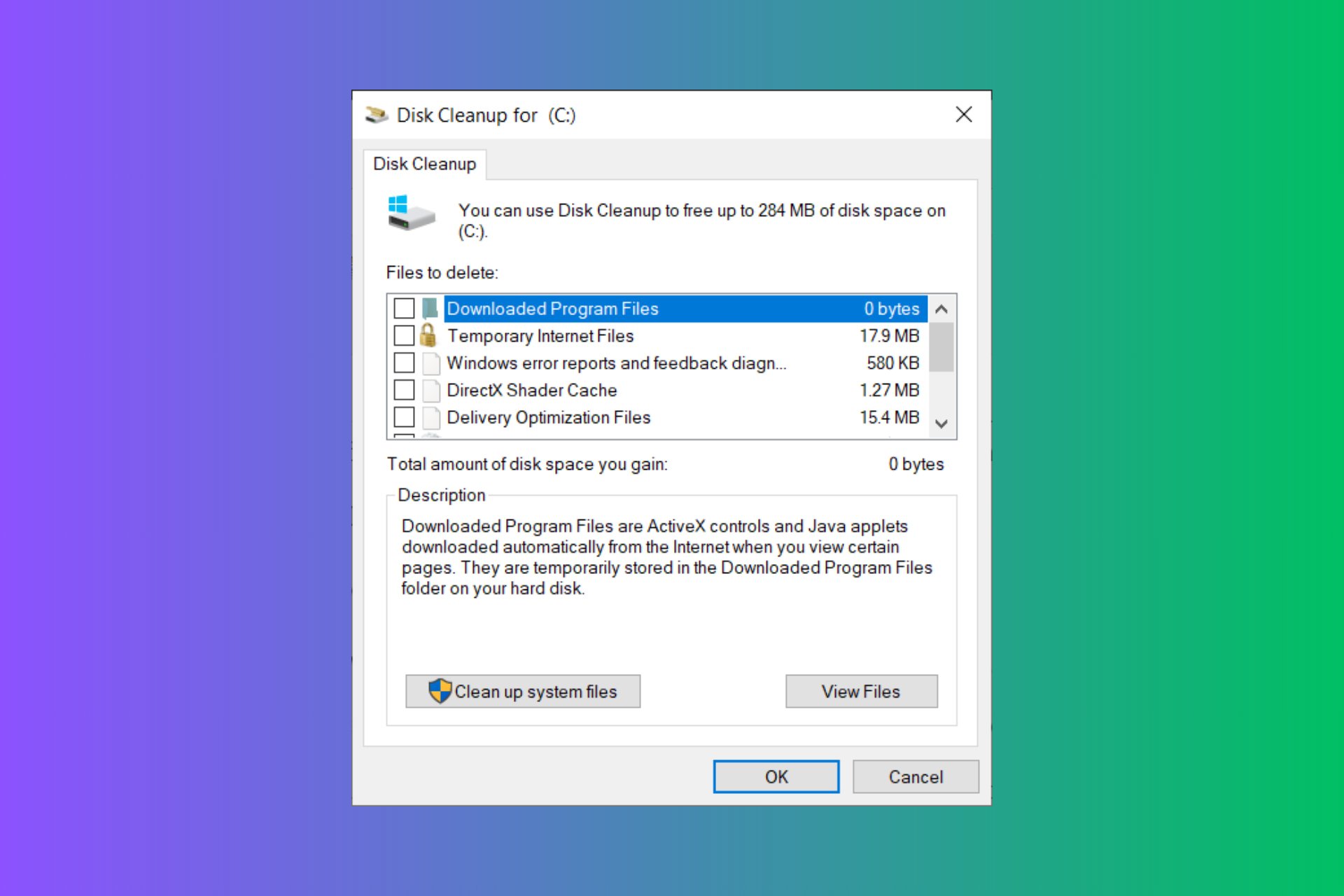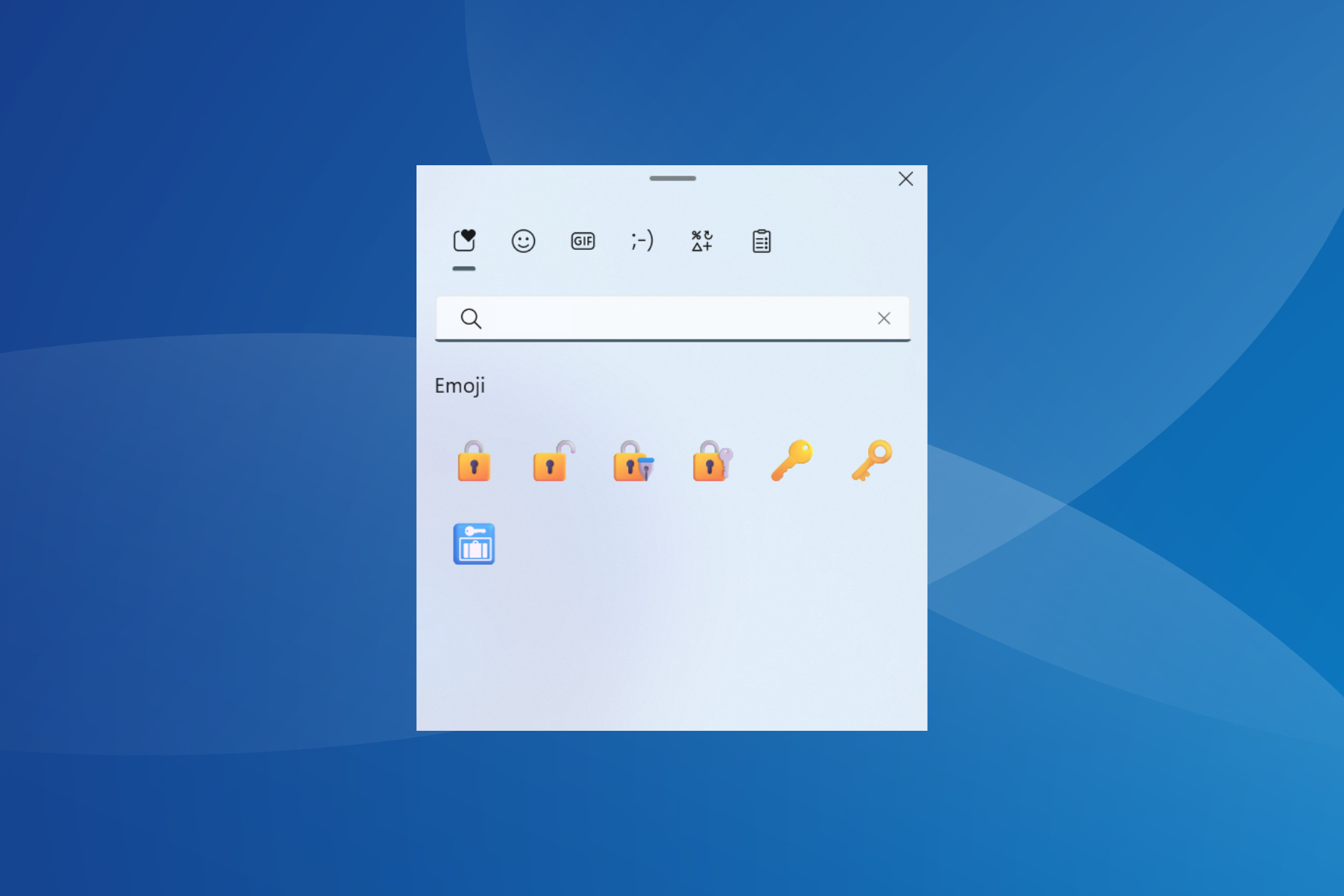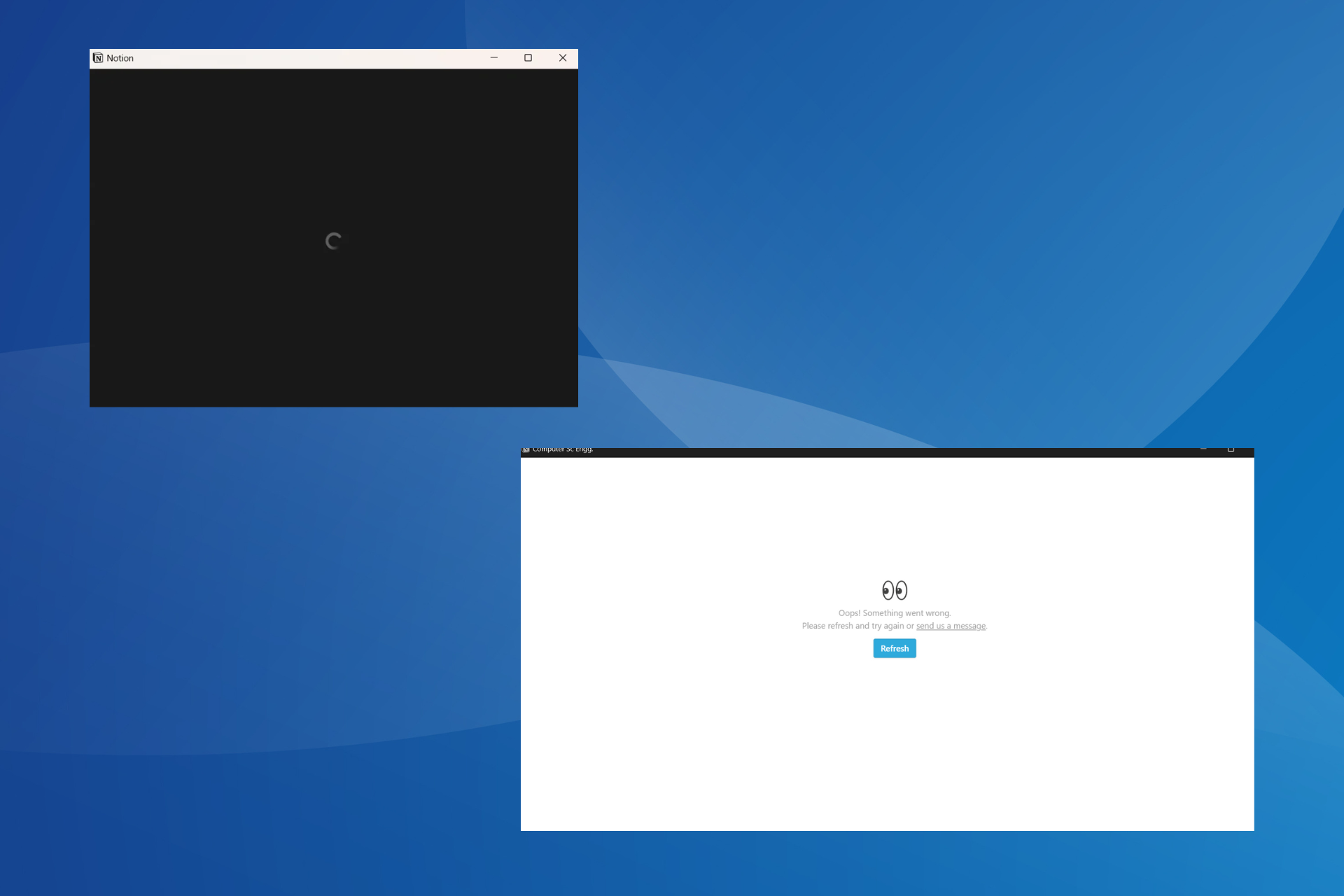Disk Cleanup vs Defrag: Differences and Use Cases
Both improve the PCs performance but differ in a key aspect
4 min. read
Published on
Read our disclosure page to find out how can you help Windows Report sustain the editorial team Read more
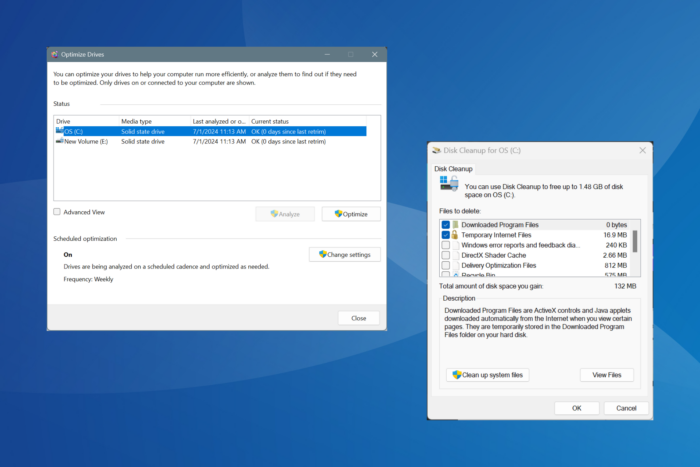
Disk Cleanup and Disk Defragmentation (Defrag or Defragging) are two terms often used interchangeably when we talk about optimizing the PC’s performance. However, each has a specific purpose, quite different from another!
Disk Cleanup is a built-in utility that allows you to clear files on the PC and boost the available storage space. On the other hand, Disk Defrag reorganizes the data on the drive so that related files are stacked up close to one another, facilitating quick access.
What is the difference between Disk Cleanup vs Defrag?
| Disk Cleanup | Disk Defragmentation | |
| Purpose | Free up storage space by deleting unnecessary files | Reorganizing the file segments and bringing them close to one another for easy access |
| Ability to clear storage space | Increases free storage | No effect on free storage |
| Application with HDD and SSD | Can be used on both HDD and SSD | Only for HDD, defragging SSD will reduce its life span |
| Benefits | Deletes temporary files, allowing you to store more data | Removes fragmentation, thus improving the PCs performance and boot speed |
| Recommended frequency | Once every few months, or as required | Once per month |
| Ability to automate | Can be automated using Task Scheduler, or you can set up storage sense | Windows automatically optimizes the drive, unless manually disabled |
| Average time taken | 5-45 minutes, depending on the data to be cleared and the PC’s speed | 10 minutes – a few hours, depending on the size of the drive and the extent of fragmentation |
| Possibility of errors | Might delete critical files, resulting in a black screen after Disk Cleanup, although highly unlikely | Low possibility of errors with built-in defragmentation utility in Windows |
What will happen if I do Disk Cleanup?
When you run Disk Cleanup, it will automatically list all the unnecessary files that can safely be removed and allow you to delete them, all within a matter of minutes!
When you select any file category from the list, Disk Cleanup shows a brief description, helping you identify which set of files may be useful.
To run Disk Cleanup, press Windows + S to open Search > type Disk Cleanup > click on the relevant result > select the drive to clean > click OK > tick checkboxes for the files to be deleted > click OK > again run the utility and select the drive > choose Clean up system files > select C: drive > similarly delete any unnecessary system files.
Is it good to defrag your computer?
Yes, periodically defragging the computer will remove fragmentation of data sets on the storage drive!
To defragment a drive in Windows 11, press Windows + S to open Search > type Defragment and Optimize Drives > click the relevant result > select the drive to defragment > click on Optimize > wait for the process to complete.
You can also automate disk defragmentation in Windows 11 and set it to run automatically at a fixed interval.
Remember, fragmentation only occurs on HDDs in Windows PCs. As for SSDs and other operating systems like macOS, you don’t need to carry out defragmentation at all. Doing so won’t improve performance and can often prove counterproductive!
Should I Defrag or Disk Cleanup first?
You should first run Disk Cleanup and then defrag the drive. It will reduce the amount of data the OS has to defragment, reducing the time taken to complete the process.
Besides, for faster completion, schedule Disk Cleanup and Disk Defrag to run when you are not actively using the computer.
Should I use third-party tools for Disk Cleanup and Disk Defrag?
Generally speaking, most of us don’t need third-party tools either to clear disk space or defrag the drive. Windows offers built-in utilities, Disk Cleanup and Optimize drives, which can perform the function well!
However, if you want to perform advanced operations or modify the critical parameters, a third-party tool may come to aid. As for clearing disk space, take a look at our top picks for Disk Cleanup alternatives (includes free tools). Similarly, we have a curated list of the best defrag software for Windows.
You now know all about Disk Cleanup vs Defrag, the key differences, applications, after-effects, benefits, and set up. With this information, you will be able to make Windows 11 run faster than ever and improve the disk’s performance and life span!
How frequently do you run Disk Defrag and Disk Cleanup? Share with our readers in the comments section.

